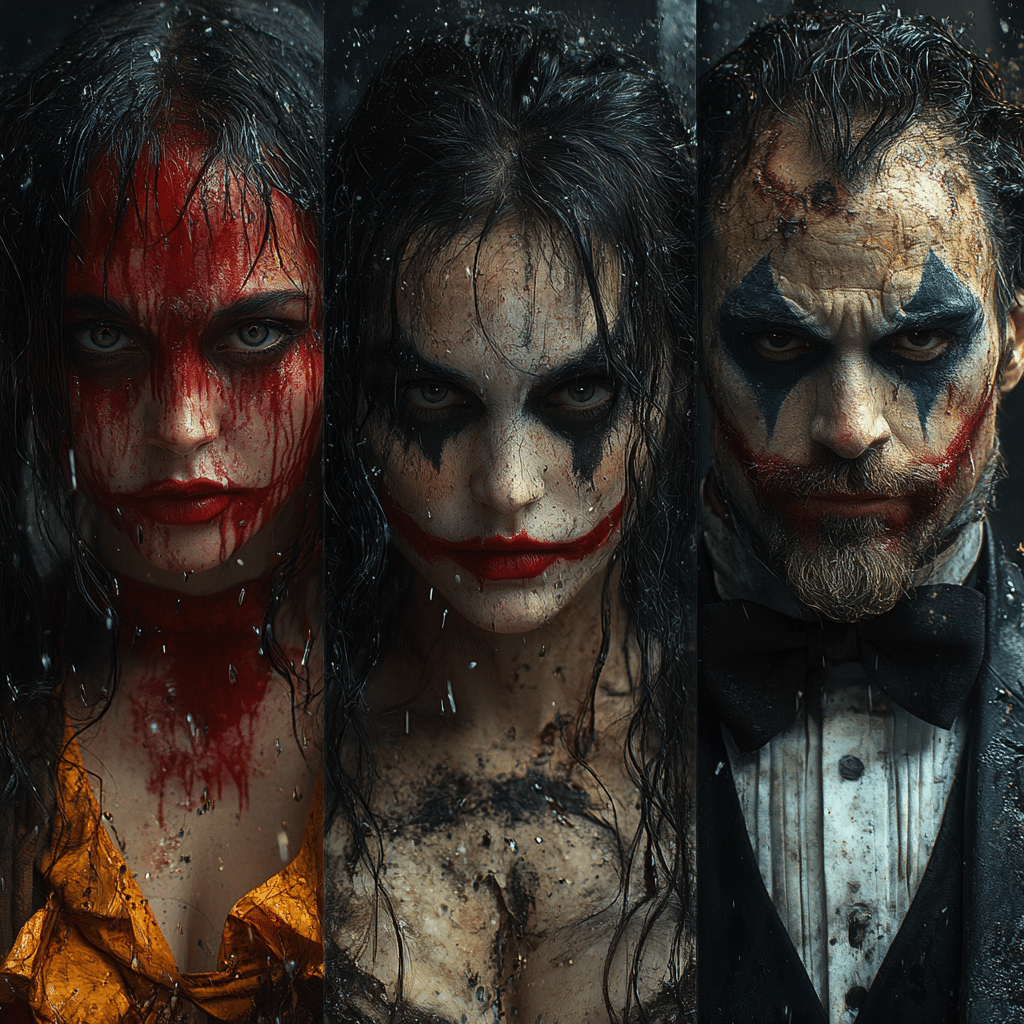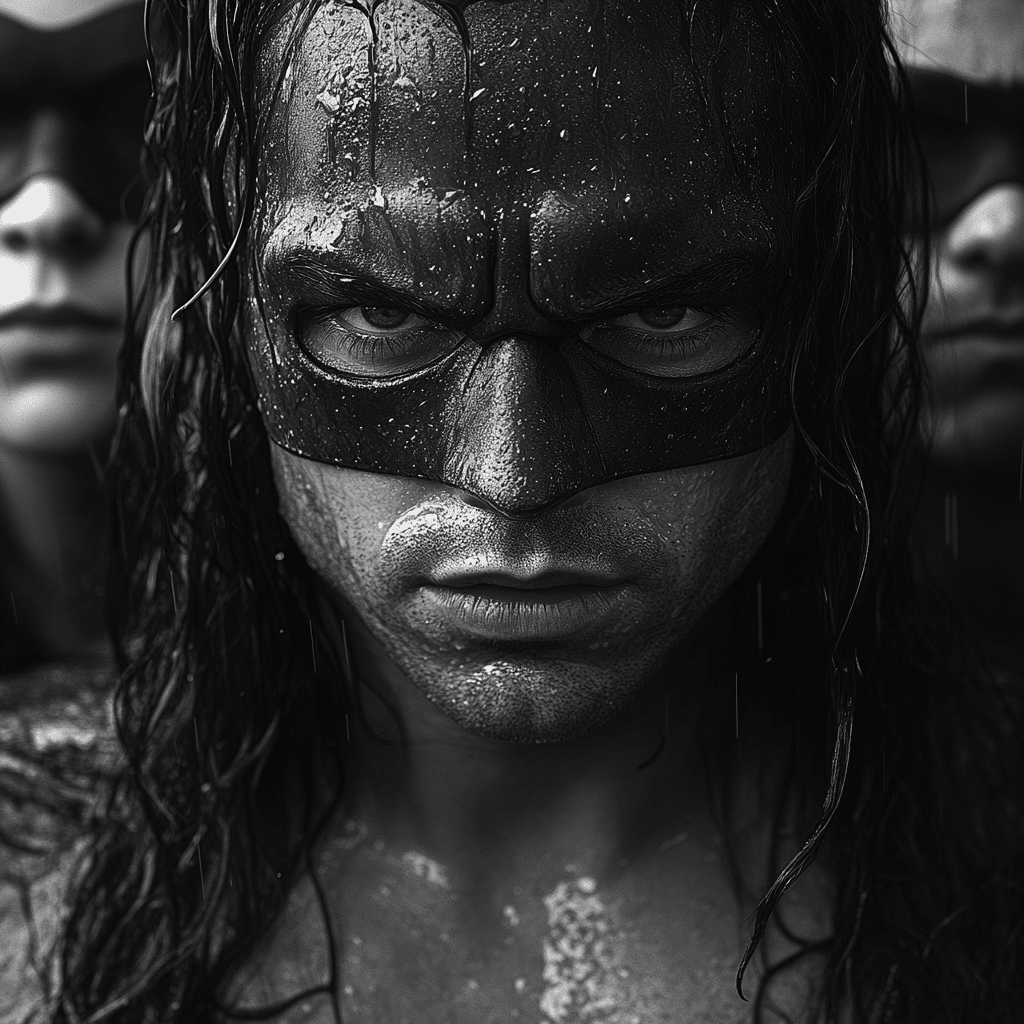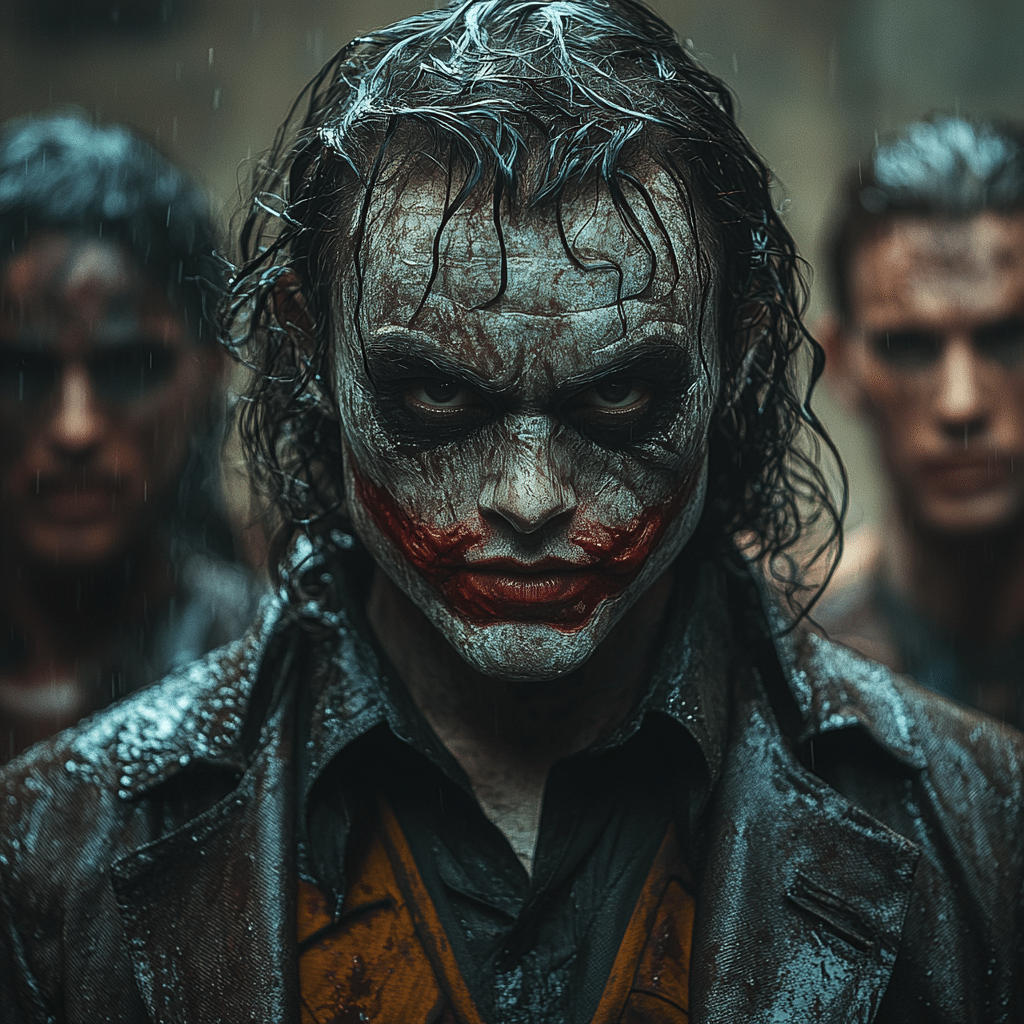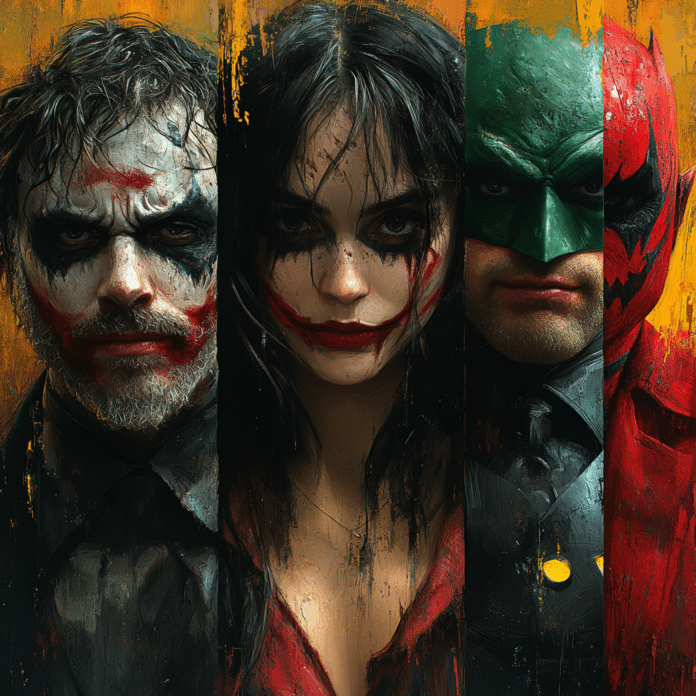When we talk about the dark knight cast, we’re not just reminiscing over some stellar performances; we’re diving into a moment in cinema that forever altered how superhero stories are told. Released in 2008, The Dark Knight set a new gold standard for how we perceive the genre, thanks to its brilliant cast and Christopher Nolan’s visionary direction. From unforgettable villain portrayals to the intricate humanity of our heroes, this film packed a punch that resonated with audiences worldwide. Strap in as we explore how the Dark Knight cast transformed superhero movies and set the stage for what we now expect from character-driven storytelling.

5 Key Performances from The Dark Knight Cast That Redefined Superhero Movies
1. Heath Ledger as The Joker
Heath Ledger didn’t just play The Joker; he became a haunting embodiment of chaos. His performance sent chills down our spines, reshaping the role of a villain in a way we hadn’t seen before. Ledger’s dedication was so intense that he dove deep into the psychological nuances of insanity, turning the Joker into a multi-faceted character rather than just a typical bad guy. When he delivers lines like, “Why so serious?” it lingers beyond the screen, making you wonder about the nature of evil itself.
His rendition brought forth themes of moral ambiguity and chaos, challenging traditional superhero tropes. It was a villain who wasn’t just out for power but reveled in the chaos he created around him. This complexity turned The Joker into an icon, shifting views on what villains in superhero films could—and should—represent. Ledger’s performance not only snagged him a posthumous Academy Award but also made every future superhero film step up their game.
2. Christian Bale as Bruce Wayne/Batman
Christian Bale didn’t just slip into the cape; he reshaped the identity of Batman for generations. Unlike past portrayals that painted him as an infallible hero, Bale showed us Bruce Wayne’s vulnerabilities. This humanization revealed the intense psychological turmoil that comes with donning the dark persona. His grueling physical transformation and emotional depth set a benchmark for future actors stepping into superhero roles.
Bale’s Batman wrestled with moral dilemmas, emphasizing that true heroism isn’t about having superpowers; it’s about making tough choices in dark times. This shift in focus from mere action to character development invited audiences to connect with Bruce Wayne’s plight. His dynamic portrayal transformed the Batman franchise into something that felt relatable and profoundly real.
3. Aaron Eckhart as Harvey Dent/Two-Face
Aaron Eckhart’s thrilling performance as Harvey Dent showcased the lighter side of the law, only to peel back layers revealing a profoundly tragic figure. His transformation from the idealistic district attorney to the vengeful Two-Face highlighted a duality that raised the stakes in superhero storytelling. Eckhart’s ability to convey Dent’s fall from grace sparked conversations about the fragile line between good and evil.
This journey opened doors for films to explore morality and the consequences of choices, illustrating that each action has lasting repercussions. Eckhart’s portrayal made audiences reflect on their own moral compass, proving superhero narratives could tackle weighty themes while still blending thrilling plot twists. It paved the way for future films to delve into character-driven storytelling, showing that every hero—or villain—has a backstory worth exploring.
4. Gary Oldman as Commissioner Gordon
Gary Oldman, with his iconic portrayal of Commissioner Gordon, redefined the archetype of the sidekick in superhero films. He brought a sense of integrity and steadfast support that echoed the notion that not all heroes wear capes. His character was a symbol of moral courage, grounding both the narrative and Batman in a reality where hope was a tangible force.
Oldman’s rendition of Gordon demonstrated that true heroism can be as simple as standing for what’s right, bridging the gap between the police force and Gotham’s Dark Knight. He paved the way for more complex supporting roles in future superhero films, showcasing that every character matters. Gone are the days of one-dimensional sidekicks; thanks to Oldman, we now expect depth in every role, no matter how big or small.
5. Maggie Gyllenhaal as Rachel Dawes
Maggie Gyllenhaal stepped into Rachel Dawes’ shoes with a fresh perspective. Unlike her predecessor, Katie Holmes, Gyllenhaal brought an empowered spirit to the character, turning Rachel into more than just another love interest. Gyllenhaal challenged Batman’s moral dilemmas, illustrating that women in superhero films can embody strength, intelligence, and agency.
Through her performance, she represents the complexities women face in these narratives, demanding respect and equality. Gyllenhaal’s interpretation encourages filmmakers to create dimensional female characters that resonate with both male and female audiences. This lady could easily be one of the most relatable, refreshing characters we have seen in the superhero genre.

Unlocking the Legacy: The Impact Beyond the Screen
The transformative punch from The Dark Knight echoed through pop culture, influencing everything from gritty comedies like A Haunted House 2 to deep narratives in features like Bleach: Thousand-Year Blood War. The tone established in The Dark Knight made it acceptable for horror and comedy genres to experiment with darker tones while also exploring character depth.
What’s more, movies like A Knight’s Tale showcased a playful mix of genres, indicating that a rock ‘n roll attitude could go hand-in-hand with historical narratives. The character arcs displayed in The Dark Knight inspire multifaceted storytelling in projects like Gypsy’s Revenge and adaptations like Path of Titans, proving depth trumps a simple action plot. It’s this legacy of storytelling that continues to inspire a new generation of filmmakers and characters.
Envisioning the Future of Superhero Films
As we cruise into the future of superhero cinema, the relevance of themes birthed in The Dark Knight is undeniable. Films now embrace the complexities of human nature—characters aren’t perfect; they’re flawed and relatable. The exploration of moral ambiguity and psychological depth has set a new course; it’s clear we want more than spectacle.
Future superhero films are still feeling the impact of the Dark Knight cast, making characters accessible and real. It encourages writers and directors to thread the human experience into narratives, ensuring that every action hero isn’t defined solely by their gadgets or superpowers but by the emotional stakes they face. It’s this core of humanity that resonates, inviting us to appreciate how far superhero cinema has come—and how far it still has to go.
So, the dark knight cast doesn’t just represent a film; they’ve sculpted a revolution in storytelling that will echo for decades to come. Truly, every time you watch a superhero flick that dives deep into its characters, remember: you’ve got The Dark Knight cast to thank for raising the bar!
The Dark Knight Cast That Changed Superhero Movies Forever
Behind the Scenes Fun
The casting of The Dark Knight Cast reshaped how audiences viewed superhero films, and it wasn’t just about the actors’ performances. Did you know that Heath Ledger’s take on the Joker was so intense and dedicated that he isolated himself for weeks to embrace the character fully? This commitment was evident in his chilling performance, which many argue set a new bar for villain portrayals in the genre. His approach echoed some of the extremes seen in modern-day celebrity commitments, like when Travis Kelce’s girlfriend Kayla reflects on the pressures of fame in her own way, totally transforming public perception.
A Star-Studded Turnout
But it wasn’t just Ledger who left jaws dropped. Christian Bale’s portrayal of Batman marked the beginning of a darker take on the caped crusader, paving the way for a grittier vibe in later adaptations. Interestingly, Bale has often shared that he drew inspiration from his experiences in various parts of life, creating a depth in his character that feels all too real—much like the cautionary tales surrounding figures like Alberto Salazar in sports. The dedication from The Dark Knight Cast influenced not just box office performance but also how filmmakers crafted superhero narratives afterward.
The Legacy Continues
The impact of The Dark Knight Cast can still be felt in today’s cinematic landscape. With talented players like Aaron Eckhart, who brilliantly tackled the moral dilemma of Harvey Dent, the depth and psychological approach of the characters became the industry standard. Interestingly, these themes resonate widely beyond film; for instance, Petra Collinss artistry captures similar struggles through visual storytelling, proving how various art forms can reflect our own battles. Just as Bronwyn Vances journey has shown the intertwining of personal and professional hurdles, so too did the characters created in Nolan’s universe challenge viewers to think deeper about heroism and villainy.
In the mix of all this talent, it’s no wonder such a memorable ensemble has influenced fan’s expectations of superhero movies even today. Each piece of this cast contributed to a legacy that continues to inspire creators, as evident from trends in current films and pop culture, like menu items inspired by Huddle House reflecting the local quick bites we all love. With all these intriguing connections running through The Dark Knight Cast, it’s clear that the film’s ripple effects are a testament to the strength and legacy of its actors.




